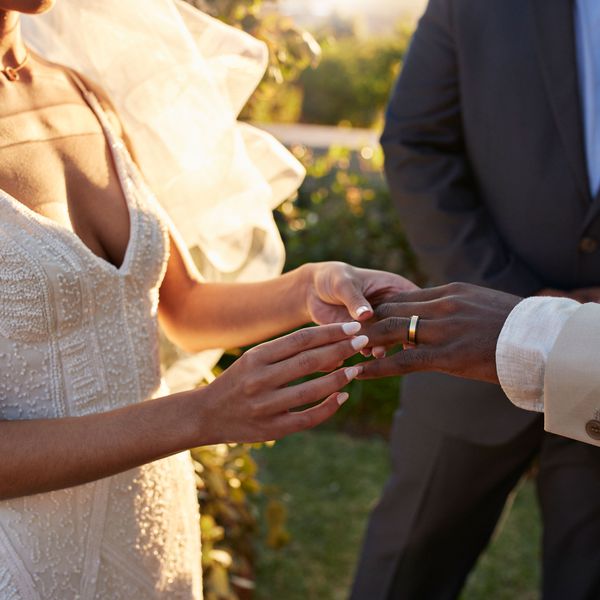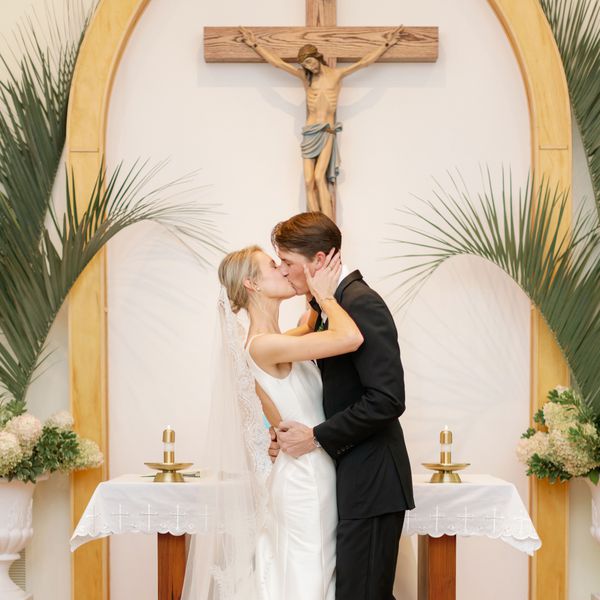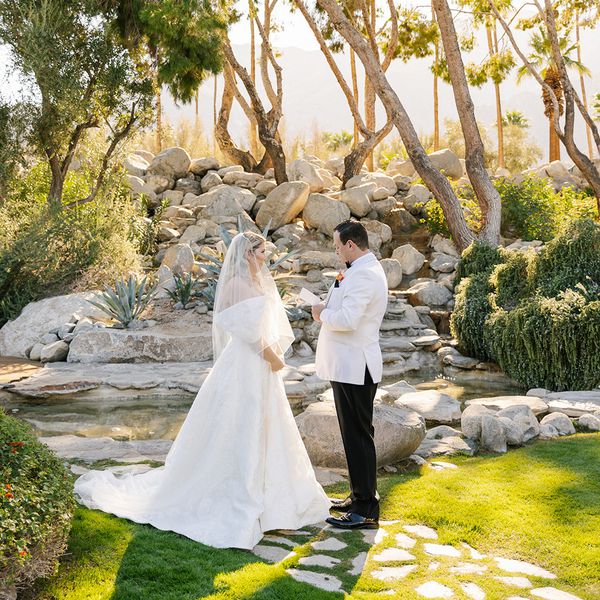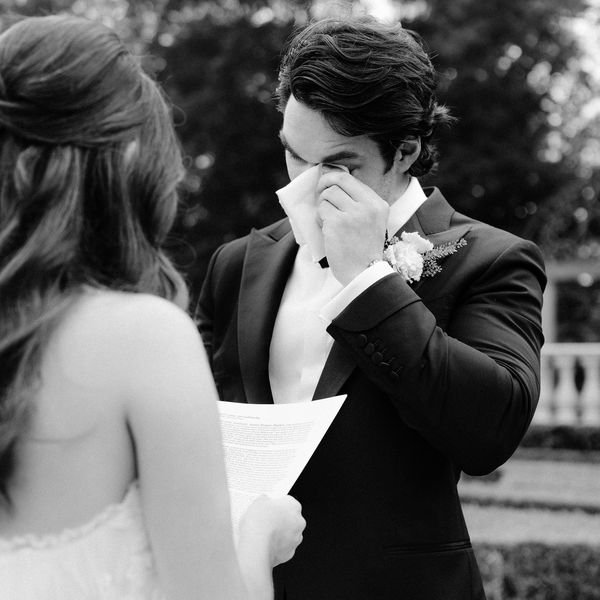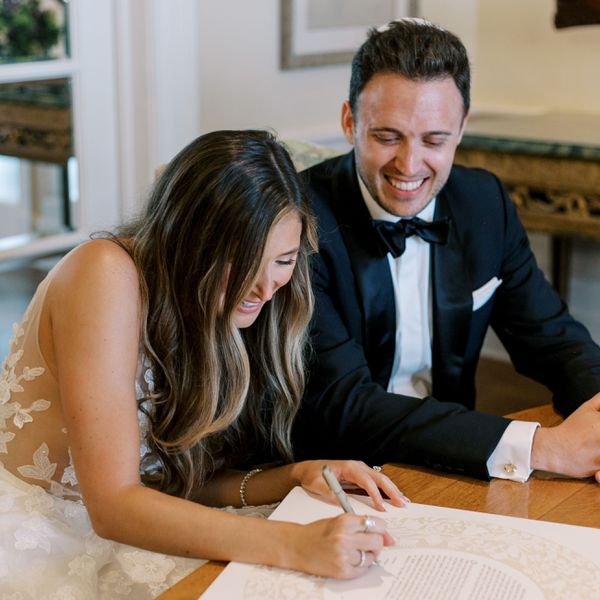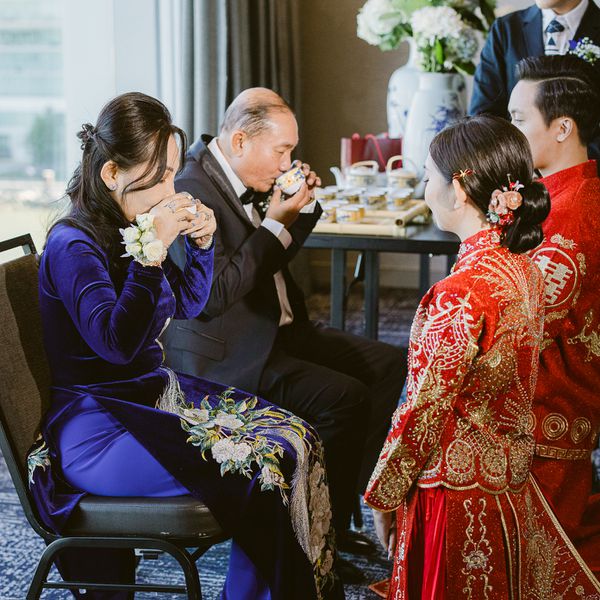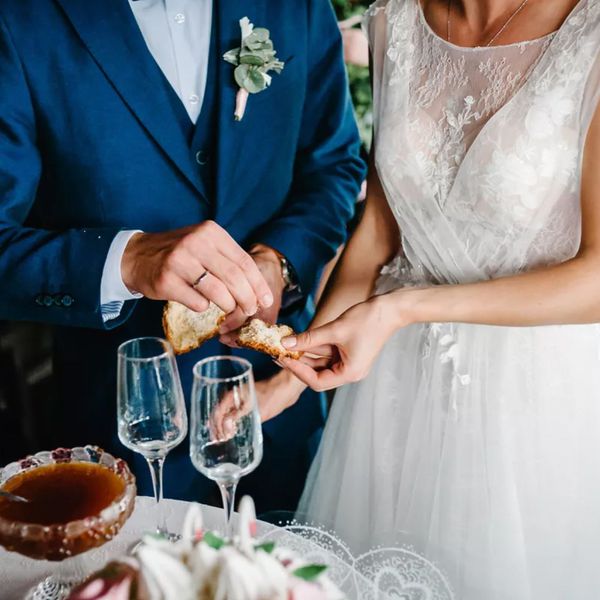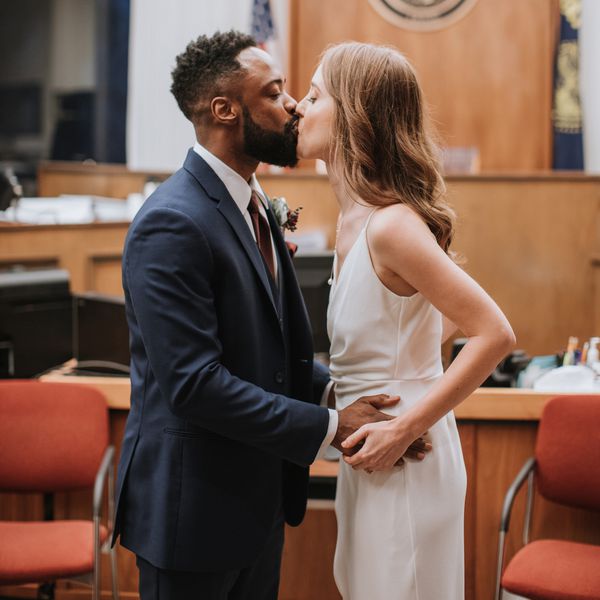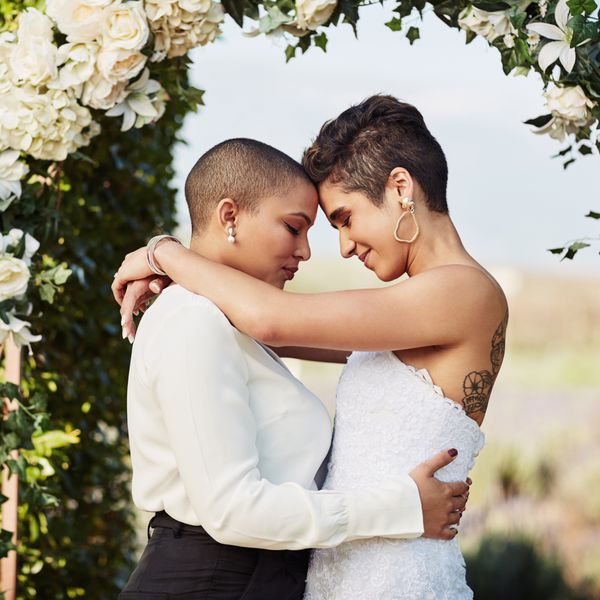:max_bytes(150000):strip_icc()/Declaration-of-Intent-Clary-Pfeiffer-Photography-Main-80697ac38a684a42910739b241cdd632.jpg)
Photo by Clary Pfeiffer Photography
If you've ever been to a wedding ceremony or seen one in a movie, you’re probably familiar with the custom of exchanging vows. During this sentimental moment, couples will openly express their commitment to each other by reciting a few words they've personally written before the big day. However, regardless of the soon-to-be-weds' background, religious affiliation, and personal wishes, most ceremonies will also include a declaration of intent.
Here's where things get tricky, though: Wedding vows and declarations of intent are often seen as the same thing—but, they're not. While both express a couple’s intention towards cultivating a lifelong marriage, there are several factors that set these two remarks apart. That's why we consulted with an expert to highlight the differences between a declaration of intent and wedding vows—plus, we explain whether or not you need to say both at the altar. Read on for more.
Meet the Expert
Katelyn Peterson is a speech writer and the founder of vow- and toast-writing company Wedding Words.
What Is a Declaration of Intent?
A declaration of intent is a couple's statement affirming their desire to get married. During this moment of a wedding ceremony, an officiant will ask each person if they'll take their partner as their lawfully wedded spouse, in which both individuals will have to confirm with the phrase "I do" or "I will."
Katelyn Peterson, a wedding speech and vow writer, also explains that a declaration of intent is the verbal equivalent of signing a marriage license. “The goal of the declaration of intent is to communicate that you are entering into this commitment of your own free will,” Peterson notes, who also adds that this verbal agreement is required by law in many states.
:max_bytes(150000):strip_icc()/0864_JV209573-5a659ce17108499f87bdf6640e6f36d6.jpg)
Photo by Jose Villa
The Differences Between a Declaration of Intent and Wedding Vows
Since you're committing to your partner through your vows and the ceremony as a whole, you might be wondering why you also need to recite a declaration of intent. Ahead, Peterson helps explain the key differences between both statements, from the purpose to the wording and the legal requirements.
The Purpose
According to Peterson, “When you make a vow, you are making a promise. The goal of your vows is to communicate how you envision upholding your commitment in marriage.” However, the declaration of intent establishes that you are making a vow of your own free will. Thus, the purpose (or goal) of each remark is different: The declaration states you are willingly entering a marriage, while the vows express how you will put your commitment into practice.
The Wording
Peterson shares that the declaration of intent “has less room for creative freedom and flowery words,” while vows can be customized to express your love. In general, the standard script for a declaration of intent, which is read by the officiant, often looks like:
Do you [Name], take this [woman/man/person] to be your lawfully wedded [husband/wife/spouse], to live together in matrimony, to love [her/him/them], comfort [her/him/them], honor and keep [her/him/them], in sickness and in health, in sorrow and in joy, to have and to hold, from this day forward, as long as you both shall live?
To this, the partner will respond with “I do" or "I will."
The exact script will vary based on whether you're having a religious ceremony or not. What's more, if you're having a non-religious wedding, you may be able to ask your officiant if you can swap the “sickness and health, richer or poorer” lines with something that better reflects your values, notes Peterson.
On the other hand, vows can be completely personalized to express your words, and are said during the ceremony by you. “While I have recommendations for what to include and not include in vows, as well as formats to follow, custom written vows are just that: completely custom,” Peterson explains. “This means the vows can be as unique as the couple and truly reflect their love story.”
The Legal Requirements
Technically, a declaration of intent isn’t a legally binding phrase—it’s mostly a formality. That said, your state’s marriage license process may require it. Couples in North Carolina, for example, must have two witnesses—in addition to their officiant—sign their license after the ceremony. This is to ensure at least two people saw the couple verbally declare their intentions to marry.
Be sure to check your state's requirements regarding declarations of intent before tying the knot. This applies to those having a destination wedding, too. Since you're still required to complete paperwork for a marriage license where you reside, the laws that dictate your state will determine if you need to recite a declaration of intent.
